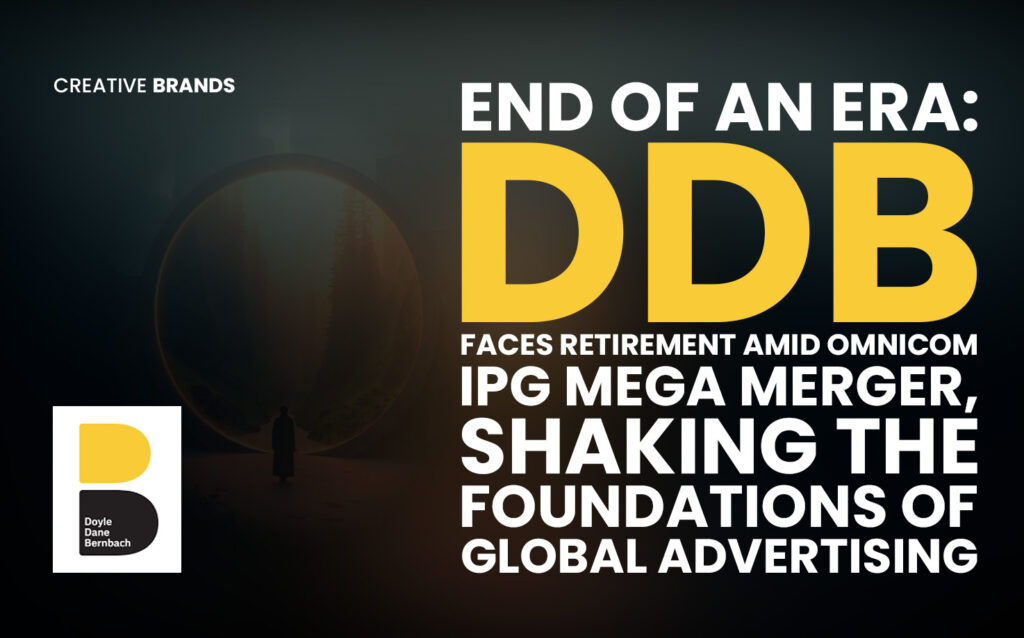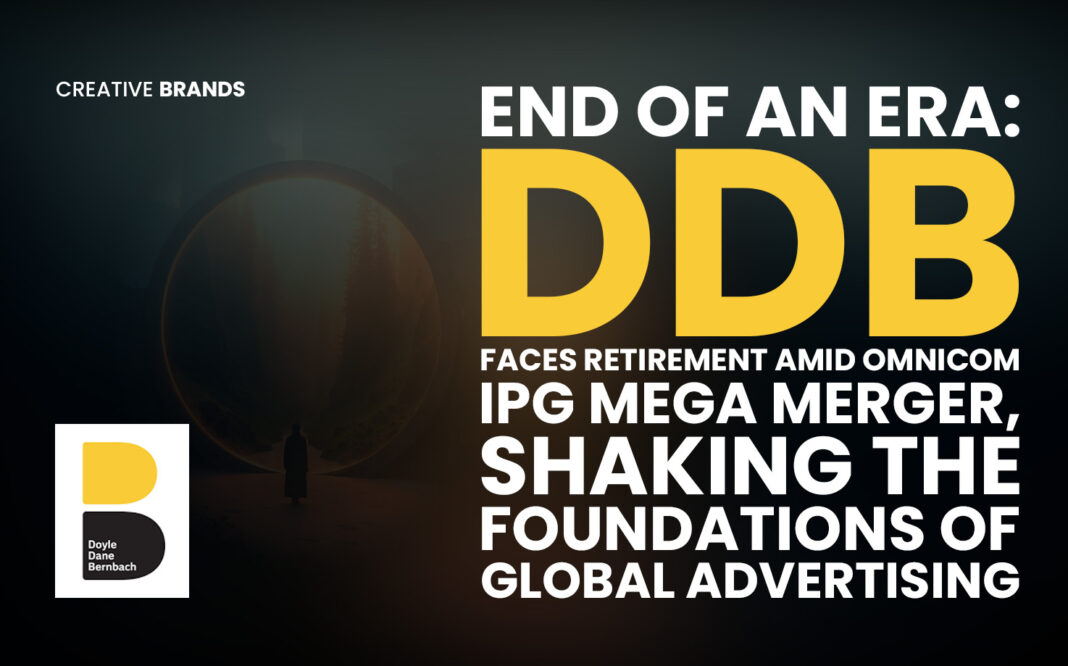Omnicom Media Group and Interpublic Group’s landmark merger could retire iconic creative agencies including DDB, FCB, and MullenLowe, signaling a major consolidation in global advertising. While Omnicom’s BBDO and TBWA may continue, the move raises concerns about the loss of legacy, creative diversity, and the soul of the industry.

A seismic shift is rumbling through the global advertising world. According to a report by Manifest, the legendary DDB brand — a creative powerhouse since its founding in 1949 — is set to be retired as part of the unprecedented merger between Omnicom Media Group and Interpublic Group (IPG).
For decades, DDB has stood as a beacon of creativity, innovation, and strategic excellence. From its revolutionary “Think Small” campaign for Volkswagen to defining the tone of modern advertising, the agency has not just sold products — it has shaped culture. Yet, if the reports are accurate, the DDB name may soon fade into history, marking the end of an era that helped define global marketing.
And DDB might not be alone. The same report suggests that IPG’s other creative titans — FCB Global and MullenLowe Global — could also be on the chopping block. Meanwhile, Omnicom’s BBDO Worldwide and TBWA\Worldwide\ are reportedly set to continue under the new consolidated structure.
The move, part of what’s being described as a “mega-merger” aimed at driving efficiency and integrating creative, media, and data-driven marketing solutions, has sent shockwaves across the industry. Executives familiar with the merger note that such consolidation is intended to “streamline operations, strengthen global delivery, and create new growth opportunities.” But behind the corporate optimism, there’s a deep sense of loss.
For advertising veterans, the thought of dismantling agencies like DDB, FCB, or MullenLowe feels almost unthinkable. These names aren’t just business units — they are creative institutions that have nurtured generations of storytellers, copywriters, designers, and strategists. Each brand carries decades of campaigns, client relationships, and cultural impact that can’t easily be replicated under a new banner.
The advertising landscape has been evolving rapidly, driven by the rise of AI-driven creativity, the dominance of digital platforms, and the demand for integrated performance solutions. Mergers like this one reflect the growing pressure on holding companies to adapt. By merging two of the world’s largest communications networks, Omnicom and IPG may be seeking to future-proof their operations in an increasingly fragmented marketplace.
However, the move raises critical questions. What does this mean for clients who value the distinctive voices and cultures of legacy agencies? Will consolidation truly create synergy, or will it flatten the creative diversity that once defined the global advertising ecosystem?
Agency culture has long thrived on differentiation — the unique DNA that made DDB bold, FCB insightful, MullenLowe irreverent, BBDO disciplined, and TBWA disruptive. Combining all of these under fewer umbrellas risks losing the very character that made them leaders in their own right.
Industry observers note that this isn’t just a corporate realignment — it’s a moment of reckoning for creative capitalism itself. “Mergers like these are both an opportunity and a warning,” says one senior strategist. “They show how far the business has evolved from art toward algorithm. But in chasing scale, we must be careful not to erase the soul of creativity.”
The story of DDB, in particular, holds symbolic weight. Founded by Bill Bernbach, Ned Doyle, and Mac Dane in 1949, DDB transformed advertising from mere product promotion into an art form. Bernbach’s belief in the power of human insight and simplicity changed the language of marketing forever. To see that legacy potentially retired underlines how radically the industry’s priorities have shifted in the digital era.
The merger also signals the intensifying competition between traditional holding groups and tech-driven marketing ecosystems led by Google, Meta, and Amazon. As AI tools, data analytics, and automation redefine marketing effectiveness, traditional creative agencies are being forced to evolve or consolidate. For Omnicom and IPG, the merger could be a strategic step toward competing with these global tech giants in a new era of creative-data integration.
Still, for thousands of employees, alumni, and clients who built their careers around these storied brands, the news hits differently. The creative world is mourning not just the potential loss of a name, but of an identity — one that stood for creative rebellion, human insight, and the courage to think differently.
As the advertising industry takes stock of this monumental merger, one truth is clear: nothing remains static. Agencies that once redefined the rules of communication are now being reshaped by forces of scale, speed, and shareholder value. Whether this merger represents evolution or erasure remains to be seen.
But as conversations ignite across global networks, one question echoes louder than the rest: In the pursuit of progress, what part of creativity are we willing to lose?
Discover more from Creative Brands
Subscribe to get the latest posts sent to your email.






